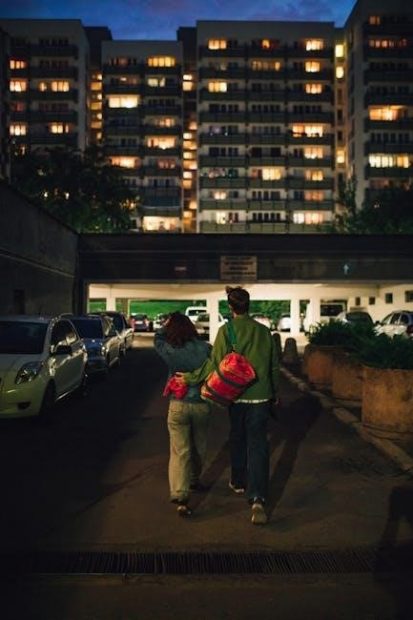Discover how creativity and resourcefulness can transform your travel experiences. Explore strategies like work exchanges, volunteering, and leveraging the sharing economy to wander without wealth. Budget travel isn’t just about saving money—it’s about embracing adventure and connecting with the world on your terms.
1.1 Understanding the Basics of Traveling with Limited Funds
Traveling with limited funds requires creativity and flexibility. Start by identifying free or low-cost activities, such as exploring local markets or hiking in nature. Consider work exchanges or volunteering through programs like WWOOF or Workaway, which offer accommodation and meals in exchange for labor. Budgeting is crucial—track expenses to ensure you’re making the most of your resources. Hitchhiking and Couchsurfing are also viable options for reducing costs. By embracing simplicity and planning carefully, you can explore the world without breaking the bank.
1.2 Debunking Myths About Traveling Without Money
Many believe traveling without money is impossible, but this is a myth. While funds are limited, creativity and resourcefulness can open doors to free or low-cost experiences. Volunteering, work exchanges, and Couchsurfing are viable options that reduce expenses. Hitchhiking and public transport can also cut costs. Safety concerns are manageable with proper planning. Traveling without money requires flexibility but is far from impossible. With the right mindset, you can explore the world without breaking the bank, proving that money isn’t the only key to adventure.

Budgeting and Planning
Budgeting and planning are crucial for affordable travel. Use apps to track expenses, set realistic goals, and prioritize spending to enjoy your journey without overspending.
2.1 Creating a Realistic Travel Budget
Creating a realistic travel budget starts with assessing your income and expenses. Prioritize essential costs like transportation, accommodation, and food. Allocate a small portion for activities and emergencies. Use budgeting apps to track spending and stay accountable. Consider flexible travel dates and off-peak seasons for lower prices. Research destinations thoroughly to understand local costs and plan accordingly. A well-structured budget ensures you maximize your travel experience without financial stress or overspending.
2.2 How to Save Money Before Your Trip
Saving money for travel requires discipline and creativity. Start by cutting unnecessary expenses like dining out or subscription services. Open a dedicated savings account to keep travel funds separate. Sell unwanted items to generate extra cash. Consider a side hustle or freelance work to boost income. Use budgeting apps to monitor progress and stay motivated. Automate savings transfers to ensure consistent progress. Every small sacrifice contributes to achieving your travel goals without financial strain.
2.3 The Importance of Flexible Travel Dates
Flexible travel dates are crucial for saving money and maximizing opportunities. By being open to traveling during off-peak seasons or less busy days, you can secure cheaper flights and accommodations. This flexibility also allows you to take advantage of last-minute deals or unexpected opportunities. Additionally, it reduces the pressure of sticking to a rigid itinerary, enabling you to adapt and explore more efficiently. Embracing flexibility ensures your trip remains affordable and stress-free, even with limited funds.
- Travel during off-peak seasons for lower prices.
- Consider mid-week flights instead of weekends.
- Avoid holidays and school breaks when prices surge.
- Use fare calendars to identify the cheapest days to fly.
2.4 Using Budgeting Apps for Travel Planning
Budgeting apps are essential tools for managing finances while traveling. Apps like Mint, You Need A Budget (YNAB), and Trail Wallet help track expenses, set budget goals, and categorize spending. They also provide insights into where your money goes, ensuring you stay within limits. Many apps offer features like currency conversion, budget alerts, and savings tips. By using these tools, you can optimize your travel funds, avoid overspending, and make the most of your limited budget. They’re indispensable for maintaining financial discipline on the go.
- Track daily expenses to stay on budget.
- Set financial goals for your trip.
- Monitor spending across categories.
- Use currency conversion for international trips.
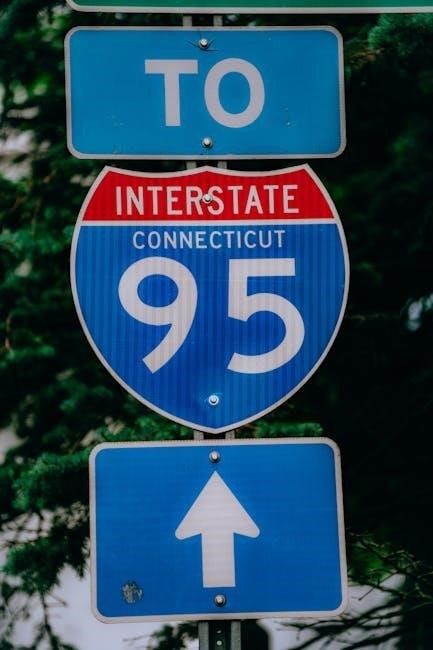
Finding Free or Cheap Accommodation
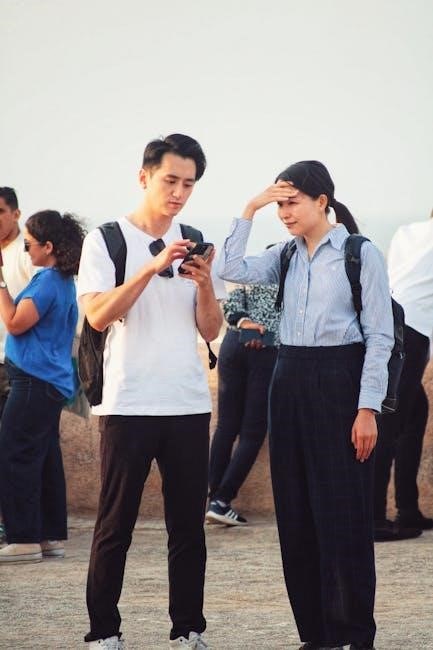
Explore affordable lodging options like Couchsurfing, house sitting, and hostels. These methods offer cost-effective ways to stay while immersing yourself in local cultures and communities during your travels.
- Couchsurfing: Stay with locals for free.
- House sitting: Exchange care for accommodation.
- Hostels: Budget-friendly and social spaces.
- Camping: A nature-focused, low-cost option.
3.1 Couchsurfing: Staying with Locals for Free
Couchsurfing is a fantastic way to stay with locals for free, fostering cultural exchange and saving money. Hosts offer a place to sleep, often sharing meals and insights into their city. It’s ideal for budget travelers seeking authentic experiences. To be a respectful guest, communicate clearly, follow house rules, and show gratitude. This platform not only provides accommodation but also builds meaningful connections worldwide.
- Connect with locals for free stays.
- Share stories and cultural experiences.
- Be a considerate and thankful guest;
3.2 House Sitting: Exchange Care for Accommodation
House sitting offers a unique opportunity to stay for free by caring for someone’s home, pets, or plants. This exchange allows travelers to live like locals while saving money. Responsibilities may include pet care, gardening, or light maintenance. Platforms like TrustedHousesitters connect homeowners with trustworthy sitters. It’s a win-win: travelers gain free accommodation, and homeowners enjoy peace of mind. Some positions even offer stipends for additional expenses.
- Exchange care for free stays.
- Responsibilities may include pet or plant care.
- Use platforms to find trusted opportunities.
3.3 Hostels: Affordable Options for Budget Travelers
Hostels are a cost-effective solution for travelers, offering dorms or private rooms at budget-friendly prices. They provide communal spaces, kitchens, and social environments, making them ideal for meeting fellow travelers. Many hostels are centrally located, reducing transportation costs. While amenities vary, they often include free Wi-Fi and laundry facilities. Booking in advance or during off-peak seasons can secure even lower rates. Hostels are a practical choice for those seeking affordable, sociable accommodation without sacrificing convenience.
- Affordable dorms and private rooms.
- Communal kitchens and social spaces.
- Central locations reduce transport costs.
3.4 Camping: A Cost-Effective Way to Stay
Camping offers a budget-friendly alternative for travelers, providing flexibility and a connection to nature. Pitching a tent or using a campervan can significantly reduce accommodation costs. Many campsites are free or low-cost, especially in rural areas. Public campsites often include basic amenities like restrooms and water. For urban stays, some cities offer affordable camping options. While gear is required, it’s a one-time investment. Camping also allows for immersion in outdoor environments and access to hiking trails, making it a practical and scenic choice for budget-conscious explorers.
- Free or low-cost camping spots.
- Connection to nature and outdoor activities.
- Requires basic camping gear.

Earning Money While Traveling
Earning money while traveling is achievable through diverse opportunities like work exchanges, teaching English, freelancing, and selling items. These methods allow you to sustain your journey creatively.
4.1 Work Exchanges: Programs Like Workaway and WWOOF
Work exchange programs like Workaway and WWOOF offer unique opportunities to travel sustainably. By contributing skills or labor, travelers receive free accommodation and meals, immersing themselves in local cultures. These programs vary from farming and childcare to hospitality, allowing individuals to gain experience while exploring new destinations. They foster cultural exchange and provide a budget-friendly way to extend travels. Ideal for those seeking meaningful experiences, work exchanges transform travel into a mutually beneficial endeavor.
4.2 Teaching English Abroad
Teaching English abroad offers a sustainable way to earn money while traveling. With a TEFL certification, travelers can secure jobs in schools, language centers, or private tutoring. Popular destinations include Asia, Latin America, and Europe, where demand for English instructors is high; This opportunity allows for cultural immersion, steady income, and the chance to build meaningful connections; Some positions even offer free housing or a modest salary, making it an ideal way to extend your travels while sharing your language skills.
4.3 Freelancing and Remote Work
Freelancing and remote work provide a flexible way to earn money while traveling. With a stable internet connection, you can offer services like writing, graphic design, or coding. Platforms like Upwork and Fiverr connect professionals with global clients. Remote jobs in fields like marketing, customer service, and IT are also viable options. This lifestyle allows you to work from anywhere, maintaining financial stability while exploring new destinations. Many travelers leverage their skills to fund extended trips, blending work and adventure seamlessly.
4.4 Selling Items You No Longer Need
Selling items you no longer need is a practical way to fund your travels. Declutter your home and list unwanted goods on platforms like eBay, Craigslist, or Facebook Marketplace. You can also host yard sales or use apps like Depop for quick transactions. This method not only generates cash but also reduces luggage space. Even small earnings can cover daily expenses like meals or transportation. It’s a sustainable way to finance your journey while decluttering your life for a fresh start.
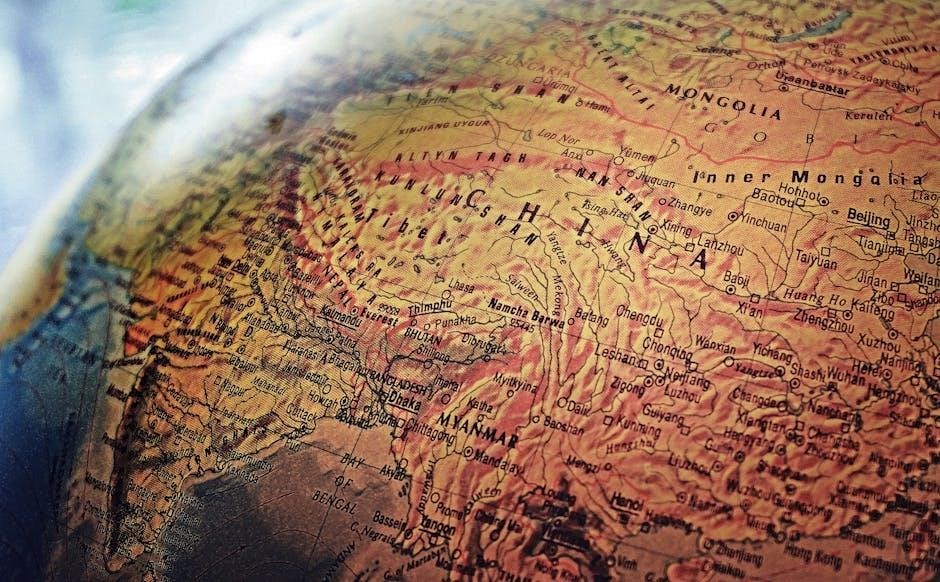
Transportation on a Shoestring Budget
Explore affordable transport options like hitchhiking, public transit, and ridesharing. Flexibility with dates can yield cheaper flights, making even long-distance travel budget-friendly with creativity.
5.1 How to Find Cheap Flights
Finding affordable flights requires flexibility and strategy. Look for deals during off-peak times, use flight comparison tools, and book in advance. Consider budget airlines, alternative airports, and round-the-world tickets. Flexibility with dates and destinations can significantly reduce costs. Additionally, signing up for airline newsletters and following flight trackers can alert you to price drops. Combining these tactics helps you secure cheap flights, making long-distance travel accessible even on a tight budget.
5.2 Hitchhiking: Safety Tips and Best Practices
Hitchhiking can be a cost-effective way to travel, but it requires caution. Choose safe, visible locations like gas stations or busy intersections. Always trust your instincts and avoid rides that feel unsafe. Carry essential items like a phone charger and water. Dress neatly to appear more approachable. Share your plans with someone beforehand. While hitchhiking is often stigmatized, it can be a rewarding experience in the right contexts. Research local hitchhiking norms and stay aware of your surroundings to ensure a smooth journey.
5.3 Using Public Transport Effectively
Public transport is a cost-effective way to explore cities and rural areas. Research routes in advance and use apps for real-time updates. Opt for multi-day passes or bulk tickets to save money. Buses and trains are often affordable and reliable. Carry a map or download a transit app to navigate efficiently. Be prepared for varying costs and schedules in different regions. Using public transport not only saves money but also offers a local perspective, making it a practical choice for budget travelers.

Utilizing the Sharing Economy
The sharing economy offers affordable options for travelers. Ridesharing services provide cheap rides, while platforms like Couchsurfing and meal-sharing connect travelers with locals for free or low-cost experiences.
6.1 Ridesharing Services for Affordable Rides
Ridesharing services like UberPool and Lyft Line offer budget-friendly options for travelers. By carpooling with others heading in the same direction, you can significantly reduce costs. Platforms like BlaBlaCar connect drivers and passengers for long-distance trips, often cheaper than trains or buses. These services are especially useful for one-way journeys. Additionally, using apps like Waze Carpool can help split fuel costs. Always compare prices and opt for carpooling options to save money. Planning ahead and booking early can further lower expenses, making ridesharing a practical choice for budget-conscious travelers.
6.2 Home-Cooked Meals with Local Chefs
Enjoy authentic, home-cooked meals through platforms like Meal Sharing or Cookpad. These services connect travelers with local chefs, offering affordable and culturally immersive dining experiences. Not only do you save money compared to restaurants, but you also gain insight into local cuisine and traditions. Many hosts offer meals at a fraction of the cost of eating out, making it a budget-friendly option. Additionally, some platforms allow you to negotiate prices or even exchange stories for a meal, creating meaningful connections along the way.
6.3 Unique Tours and Experiences
Explore unique tours and experiences through the sharing economy. Platforms like Airbnb Experiences or local tour guides offer budget-friendly activities. From free walking tours to community-driven events, these options provide authentic cultural immersion. Many tours are priced affordably or even based on tips, allowing you to enjoy enriching experiences without breaking the bank. This approach not only saves money but also connects you with locals, offering a deeper understanding of the destination’s culture and hidden gems. It’s a win-win for budget travelers seeking memorable adventures.
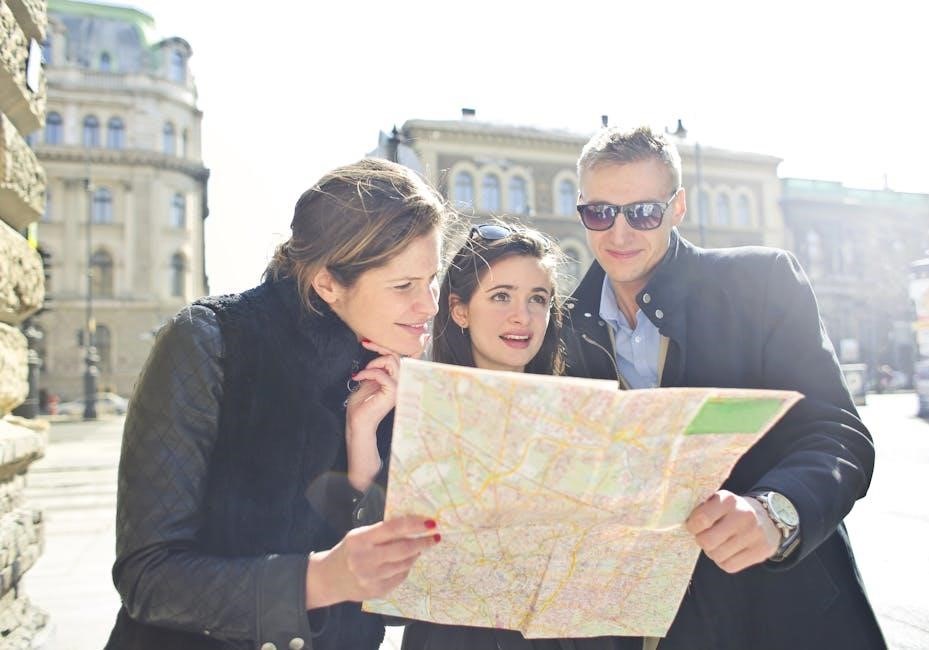
Volunteering for Accommodation and Food
Volunteer programs like WWOOF and Workaway offer free stays and meals in exchange for work. Tasks range from farming to conservation, providing meaningful experiences while saving costs.
7.1 Volunteering Through WWOOF (World Wide Opportunities on Organic Farms)
WWOOF connects travelers with organic farms worldwide, offering free accommodation and meals in exchange for work. Participants assist with farming tasks, gaining hands-on experience in sustainable practices. This program allows travelers to immerse themselves in local cultures while contributing to environmental efforts. Locations range from rural villages to sprawling farms, providing diverse opportunities for meaningful engagement. WWOOF is a unique way to travel sustainably, learn new skills, and connect with like-minded individuals, all while reducing living expenses.
7.2 Work Exchange Programs Like Workaway
Workaway connects travelers with global hosts needing help in exchange for accommodation and meals. Opportunities range from teaching, farming, and conservation to hospitality and community projects. This platform allows travelers to immerse themselves in local cultures while contributing their skills. With thousands of listings worldwide, Workaway offers flexibility and variety, enabling budget travelers to extend their journeys. It’s a rewarding way to explore new destinations, build connections, and gain meaningful experiences without financial strain.
7.3 Conservation and Wildlife Volunteering
Conservation and wildlife volunteering offers a unique way to travel sustainably while contributing to environmental and animal welfare projects. Programs often provide free accommodation and meals in exchange for your efforts. Activities may include animal monitoring, habitat restoration, or supporting endangered species. These opportunities allow you to connect with nature, gain hands-on experience, and make a meaningful impact. It’s a fulfilling way to explore new destinations while supporting important causes, making it ideal for travelers with limited budgets seeking purposeful adventures.

Safety and Security Tips
Protect your finances by using secure payment methods and safeguarding valuables. Stay vigilant in crowded areas to avoid theft and scams. Trust your instincts and research accommodations thoroughly to ensure safety while traveling on a budget.
8.1 Protecting Your Finances While Traveling
Protecting your finances while traveling is crucial, especially with limited funds. Use a money belt or secure wallet to safeguard cash and cards. Avoid carrying large sums and opt for ATMs instead. Inform your bank of travel plans to prevent account restrictions. Consider using a credit card with no foreign transaction fees for purchases. Be cautious of identity theft by avoiding public Wi-Fi for financial transactions. Keep emergency funds accessible and have a backup payment method. Stay vigilant in crowded areas to prevent pickpocketing and scams.
8.2 Avoiding Scams and Theft
While traveling with limited funds, it’s essential to stay vigilant to avoid scams and theft. Research your destination beforehand to understand common local scams. Be cautious of overly friendly strangers offering unsolicited help. Verify the legitimacy of vendors and services, especially in tourist areas. Keep copies of important documents and emergency contacts. Avoid displaying signs of wealth and secure your belongings in crowded spaces. Trust your instincts and avoid situations that feel suspicious. Awareness and preparation are key to safeguarding yourself and your resources while exploring new places.
8.3 Staying Safe in Hostels and Budget Accommodation
When staying in hostels or budget accommodations, prioritize your safety. Research the location beforehand and read reviews from other travelers. Always lock your belongings in secure lockers or use a money belt. Be cautious in shared spaces and avoid leaving valuables unattended. Keep your room key safe and ensure doors are properly locked. Trust your instincts and avoid staying in places that feel unsafe. Familiarize yourself with emergency exits and local contact information. By taking these precautions, you can enjoy budget-friendly stays while maintaining your security and peace of mind.

Mindset and Flexibility
Embrace minimalism, adapt to unexpected challenges, and build strong connections. A flexible mindset and openness to new experiences are key to thriving while traveling with limited funds.
9.1 Embracing Minimalism for Travel
Minimalism is a cornerstone of budget travel. By carrying only essentials and avoiding unnecessary purchases, you reduce costs and focus on meaningful experiences. A small backpack, versatile clothing, and a mindset shift from consumption to connection can transform your journey. Embrace simplicity to prioritize what truly matters—immersive experiences and personal growth. This approach not only lightens your load but also fosters a deeper appreciation for the world around you, making every moment more impactful and fulfilling.
9.2 Dealing with Unexpected Challenges
Unexpected challenges are inevitable when traveling with limited funds. Stay calm and think creatively to resolve issues like sudden expenses or health concerns. Prioritize problem-solving over panic, and seek affordable solutions, such as local clinics or community support. Flexibility is key—unexpected setbacks can often lead to unique opportunities. Embrace resilience and adaptability to navigate challenges gracefully, turning obstacles into memorable experiences that strengthen your travel mindset and foster personal growth. Remember, every challenge is a chance to learn and connect more deeply with the world around you.
9.3 The Importance of Networking and Community
Networking and community are vital for budget travelers. Connecting with fellow travelers and locals can lead to opportunities like free stays, shared rides, or insider tips. Joining online communities or groups can provide resources for affordable accommodations and work exchanges. Building relationships fosters trust and support, making your journey safer and more enjoyable. Engaging with like-minded individuals creates a sense of belonging and can open doors to unique experiences. Embrace the power of community to enhance your travel journey and reduce costs while gaining unforgettable connections.
